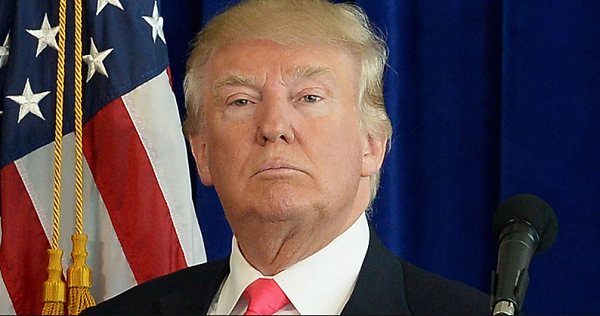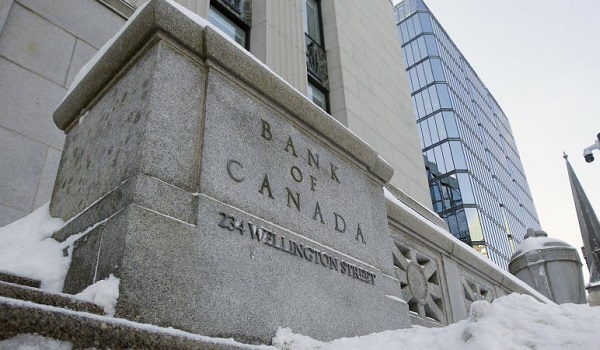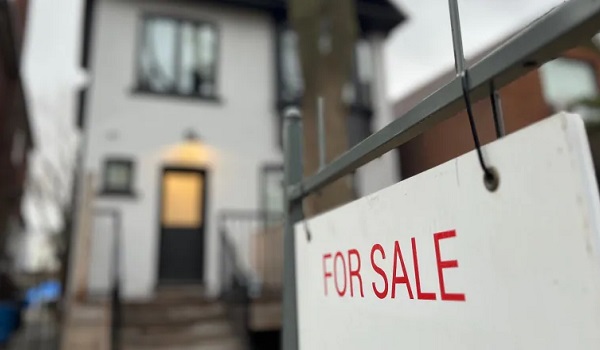Donald Trump vows to impose 25- percent tariffs on all products from Canada, Mexico on his resumption
U.S. president-elect Donald Trump is vowing to impose 25-per-cent tariffs on all products from Canada and Mexico as soon as he takes office, saying he will keep them in place until both countries crack down on drugs and immigrants entering the U.S. illegally from their territories.
Such levies would hit the Canadian economy hard because the United States is Canada’s biggest trading partner. In 2023, Canada exported $592.7-billion in goods to the United States – more than 77 per cent of this country’s total exports that year.
“On January 20th, as one of my many first executive orders, I will sign all necessary documents to charge Mexico and Canada a 25% tariff on ALL products coming into the United States, and its ridiculous open borders,” Mr. Trump said in a post on Truth Social.
He said the tariffs would remain in place until “such time as drugs, in particular fentanyl, and all illegal aliens stop this invasion of our country!”
Shortly after Mr. Trump’s post, the Canadian dollar shed about 1 per cent of its value, relative to the U.S. dollar. The loonie has recently traded at four-year lows below 71 U.S. cents, in part because of the economic threat posed by Mr. Trump’s policies.
Prime Minister Justin Trudeau spoke with Mr. Trump about two hours after Mr. Trump announced the tariffs. One Canadian government source with knowledge of the conversation said Mr. Trudeau pointed out to Mr. Trump that the number of migrants crossing from Canada to the U.S. is relatively small compared with those coming from Mexico. The official said the pair also discussed trade and border security more generally.
Mr. Trudeau also spoke with Ontario Premier Doug Ford and Quebec Premier François Legault this evening, the source said.
The Globe and Mail agreed not to name the source, who was not authorized to discuss the matter publicly.
In a statement e-mailed to media, Deputy Prime Minister Chrystia Freeland and Public Safety Minister Dominic LeBlanc said Canada “places the highest priority on border security and the integrity of our shared border.”
Ms. Freeland and Mr. LeBlanc also tried to demonstrate Canada’s usefulness to the United States, particularly on energy.
“Our relationship today is balanced and mutually beneficial, particularly for American workers. Today, Canada buys more from the United States than China, Japan, France, and the UK combined,” they said. “Canada is essential to U.S. domestic energy supply, and last year 60 per cent of U.S. crude oil imports originated in Canada.”
Earlier in the day, Mr. Ford had called on Prime Minister Justin Trudeau to meet with premiers on trade and border issues. On Monday night, he said American tariffs of this size would be “devastating to workers and jobs in both Canada and the U.S.”
Posting on X, he called on Ottawa “to take the situation at our border seriously” and to work with premiers.
“We need a Team Canada approach and response – and we need it now. Prime Minister Trudeau must call an urgent meeting with all premiers.”
Mr. Legault posted on X that Mr. Trump’s statement “poses an enormous risk to the Canadian and Quebec economies. We have to do everything possible to avoid tariffs of 25 per cent on all the products we export to the United States.
“The integrity of borders must be the priority of the federal government. I offer the government of Quebec’s full collaboration to Prime Minister Justin Trudeau.”
In Alberta, where the vast majority of its energy exports are to the U.S., Danielle Smith’s government urged Ottawa to work with Mr. Trump.
“The incoming U.S. administration has valid concerns related to illegal activities at our shared border. We are calling on the federal government to work with the incoming administration to resolve these issues immediately, thereby avoiding any unnecessary tariffs on Canadian exports to the U.S.,” said the unsigned statement.
And in B.C., where more than half of the province’s exports are sent south of the border, Premier David Eby called for a firm response from Ottawa.
“Trump’s tariffs would hurt Canadians and Americans alike. Canadians must stand united. Ottawa must respond with strength,” he wrote on X. “We’ll never stop fighting for British Columbian families.”
Up until now, the federal government’s public preparations for the Trump administration consisted of trying to demonstrate that unlike Mexico, it was in step with the United State on trade priorities.
Last week, Ms. Freeland argued that Canada is “more aligned today than ever” with the U.S. when it comes to China’s trade practices and she noted that on electric vehicle, steel and aluminum tariffs, Canada is “perfectly aligned with the United States,” meaning it is not a back door to Chinese goods.
“The same cannot be said of Mexico,” Ms. Freeland added, saying that she has been in touch with U.S. President’s Joe Biden’s administration and advisers of Mr. Trump, both of whom have “very grave concerns” that Mexico is “serving as a back door for China into the North American trading space.”
Mr. Trump has promised to renegotiate the U.S.-Mexico-Canada Agreement in 2026, when it comes up for review.
Ms. Freeland and Mr. LeBlanc, in Monday night’s statement, also spoke about joint efforts by both countries to stop shipments of fentanyl, which they chiefly blamed on China.
“Law enforcement agencies from our respective countries – the RCMP, the Canada Border Services Agency (CBSA), the U.S. Drug Enforcement Administrations, and U.S .Customs and Border Protection – work together every single day to disrupt the scourge of the fentanyl coming from China and other countries.”
Plus, the ministers said CBSA “is continuously strengthening its ability to detect opioids through enhanced inspections at ports of entry, detector dogs, and emerging technologies, preventing opioids from entering and leaving Canada.”
Mr. Trump’s post insisted that Mexico and Canada have the means to stop the flow of contraband and illegal immigrants.
“Both Mexico and Canada have the absolute right and power to easily solve this long simmering problem,” he wrote. “We hereby demand that they use this power, and until such time that they do, it is time for them to pay a very big price!”
Mr. Trump’s announcement appears to be an attempt to replicate a gambit in his first term when he made similar threats against Mexico. In that case, he ultimately decided not to go forward with the tariffs after then-president Andres Manuel Lopez Obrador agreed to a series of immigration measures. Most notably, these included Remain in Mexico, a policy under which Mexico agreed to have people who had filed asylum claims in the U.S. stay in Mexico while their claims were processed.
Earlier this month Tom Homan, Mr. Trump’s chosen White House “border czar,” told a TV station in his home of upstate New York that he wants a crackdown at the Canadian border.
The border is an “extreme national-security vulnerability” and would be the subject of “tough conversations.” He said Canada might be “a gateway to terrorists coming into the United States.”
“The problem with the northern border is a huge national security issue,” he said in an interview with 7News. “It’s one of the things I’ll tackle when I’m in the White House.”
Republicans in northern states, too, have raised alarm about the openness of the border with Canada. “It is too loose. It’s a vast amount of open space. There’s not enough boots on the ground up there from Canada, or from the U.S.,” said Stacy Zinn, who until last year led the Drug Enforcement Agency’s operations in Montana.
One of the problems has been a lack of proper law enforcement intelligence-sharing on illicit drugs, she said.
“It sounds like Trump is putting people on notice that we’re done with the drugs flowing into our country, and no other countries are doing anything to help stop it,” said Ms. Zinn, who ran an unsuccessful campaign to become the Republican candidate for Montana’s second congressional district.
She has long worried about the potential for Mexican cartel members to use Canada as a staging ground for exports to the U.S., in order to avoid the concentration of drug-enforcement resources on the southwestern U.S. border.
In late October, RCMP said cartel-associated drug manufacturing has already been taking place on Canadian soil. A massive drug lab discovered in Falkland, B.C., employed a “manufacturing method has been the primary method used by Mexican Cartels to produce methamphetamine for years,” police said.
This article was first reported by The Globe and Mail













